 By Alex Constantine
By Alex Constantine Steve McElravy was in Lexington to attend a pre-conference planning session at the Hyatt Hotel on Saturday afternoon (the eve of the crash) for an upcoming series of leadership development seminars sponsored by the Center for Substance Abuse Prevention (CSAP) in partnership with the National Prevention Network (NPN). The leadership academy was underwritten by CSAP and created for the benefit of state NPN representatives attending the 19th annual NPN Prevention Research Conference at the Lexington Convention Center, August 27-30.218 The conference was sponsored by the Kentucky Office of Drug Control Policy, the Kentucky Cabinet for Health and Family Services, NASADAD and NPN, and it drew some 740 participants.219
Steve McElravy was in Lexington to attend a pre-conference planning session at the Hyatt Hotel on Saturday afternoon (the eve of the crash) for an upcoming series of leadership development seminars sponsored by the Center for Substance Abuse Prevention (CSAP) in partnership with the National Prevention Network (NPN). The leadership academy was underwritten by CSAP and created for the benefit of state NPN representatives attending the 19th annual NPN Prevention Research Conference at the Lexington Convention Center, August 27-30.218 The conference was sponsored by the Kentucky Office of Drug Control Policy, the Kentucky Cabinet for Health and Family Services, NASADAD and NPN, and it drew some 740 participants.219 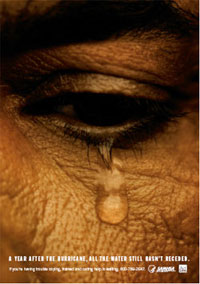 But McElravy never made it back to Maryland and his job at DH&H's Substance Abuse and Mental Health Services Administration (SAMHSA) – a front for the pharmaceutical industry, as will soon be apparent.
But McElravy never made it back to Maryland and his job at DH&H's Substance Abuse and Mental Health Services Administration (SAMHSA) – a front for the pharmaceutical industry, as will soon be apparent. The loss of McElravy was only the latest administrative blow to the agency. A few months before, in a letter dated May 22, Charles Curie resigned his position as SAMHSA administrator. He was appointed by Bush in November 2001. When he resigned, Curie had no particular place to go, no jobs in the private sector or academic appointments in his scopes. It was time to explore "future options," he said. He offered no explanation in his resignation letter (thereby perplexing the press to no end), but took the opportunity to praise Bush's New Freedom Commission (NFC).
 "These initiatives opened the door for our constituency groups to move the focus to achieving meaningful, real-life results for people who are striving to attain and sustain recovery, build resilience, work, learn, and participate fully in their communities," wrote Curie. "At the same time, we have firmly established that there are many pathways to recovery, including the transformative powers of faith, and have broadened alliances with community and faith-based service providers to better serve citizens seeking help and support."220
"These initiatives opened the door for our constituency groups to move the focus to achieving meaningful, real-life results for people who are striving to attain and sustain recovery, build resilience, work, learn, and participate fully in their communities," wrote Curie. "At the same time, we have firmly established that there are many pathways to recovery, including the transformative powers of faith, and have broadened alliances with community and faith-based service providers to better serve citizens seeking help and support."220Curie – McElravy's boss for four four years – was a leading light of the New Freedom Commission – another public-service facade for the pharmaceutical biz that has tied a grant-writing love-knot with SAMHSA.
 In November, Richard Warner at Online Journal reported, "the U.S. government will soon begin a massive campaign of psychiatric indoctrination, designed to increase the acceptance of psychiatric chemical imbalance theories and labeling, and to pave the way for national psychiatric screening, driving more Americans into seeking psychiatric drug treatment."
In November, Richard Warner at Online Journal reported, "the U.S. government will soon begin a massive campaign of psychiatric indoctrination, designed to increase the acceptance of psychiatric chemical imbalance theories and labeling, and to pave the way for national psychiatric screening, driving more Americans into seeking psychiatric drug treatment." This was the "New Freedom" initiative that Curie touted so highly.
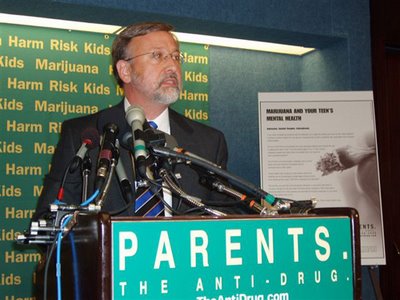 Charles G. Curie
Charles G. Curie"Regional meetings in support of the National Anti-Stigma Campaign (NASC), a nationwide television, radio and print public service advertising program" – funded by SAMHSA – "were held this past summer in Los Angeles, Denver, Chicago and Washington, D.C. According to a senior technical assistance specialist at the SAMHSA Resource Center to Address Discrimination and Stigma Associated with Mental Illness (ADS Center), the ad campaign, which will target 18-25-year olds, will be launched today. A campaign directed at older adults and ethnic and racial minorities will follow ... "
At first blush, "New Freedom" seems an appropriate step in mass mental illness prevention. The stated objective of NF is to “encourage, educate and inspire 18-25-year olds to step up and support friends they know are experiencing a mental health problem.”
However, writes Warner, "there can be no doubt about the real purpose of the campaign’s emotional appeal: to create customers for the psychiatric [and] pharmaceutical industry. This is clearly evident at SAMHSA’s website and in its literature. It is no accident that 18-25-year olds were chosen as the first target." This demographic "represents a huge untapped market for psychiatric drugs and services. According to SAMHSA’s website, the anti-stigma media blitz has been designed to establish a ‘new norm,’ in which individuals, without hesitation, will seek out the mental health services they need and deserve.”
New Freedom Commission member Charles Curie, who stepped down a few months before McElravy's death, "was the Deputy Secretary for Mental Health and Substance Abuse Services in Pennsylvania. ... According Allen Jones, an investigator in the Pennsylvania Office of Inspector General and a whistleblower, Curie is reported to have set up a slush fund from which state employees could solicit grants from the pharmaceutical industry."221
Curie was one of many NFC directors with ties to Pharma, "principally by way of an industry marketing scheme that was developed in Texas in the 1990s."
The drug-promotion scheme was largely funded by the Robert Wood Johnson Foundation.
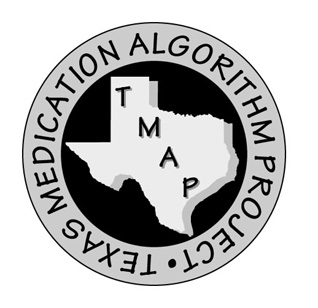
"Known as the Texas Medication Algorithm Project, or TMAP, it was designed to make the newest and most expensive psychiatric drugs the first (and virtually only) treatment option for mental health care. The project was nurtured at the University of Texas Southwestern Medical Center in Dallas, a major research center that conducts drug trials for pharmaceutical companies, with significant funding coming from the drug companies themselves. Pharmaceutical company gifts to the Texas Department of State Health Services totaled $1.3 million from 1997 to 2004, with at least $834,000 earmarked for TMAP. Backed by drug industry funding, TMAP was then exported to other states."222
McElravy's job as an anti-drug activist wasn't as clear-cut as it seemed. He was, in fact, like Curie, a Pharma federal front man, a cog in the pharmaceutical-industrial-military complex – the very same combination, in fact, that imposed fascism on Germany in the last century.
As if these Orwellian reverberations aren't bizarre enough, the story is about to become even more interesting ...
 Arnold Andrews, R.I.P.
Arnold Andrews, R.I.P.The sixth passenger aboard Flight 5191 when it crashed was Arnold Andrews, senior vice president and chief operating officer of the WestCare Foundation's eastern/offshore division in St. Petersburg, Florida. According to the capsule newspaper obits accompanying news of the Comair crash, "at WestCare, Andrews oversaw the Foundation’s substance abuse and mental health treatment programs and facilities in Florida, Georgia, Kentucky, Puerto Rico and the U.S. Virgin Islands."
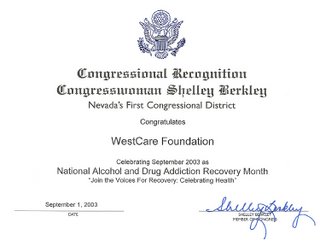
From the WestCare web site: "CHARLES G. CURIE, Administrator of the federal Substance Abuse and Mental Health Services Administration (SAMHSA) presented a grant award to WestCare for $2 million over five years to integrate treatment for health problems, substance abuse and mental disorders for homeless adults at The Turning Point."223 Another SAMHSA grant to WestCare, this one specifically for drug treatment, was bestowed on WestCare Kentucky in Frankfort for $774,000.224
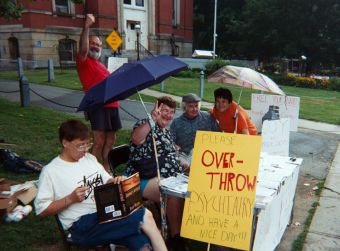 Among the most strident critics of SAMHSA is Freedom Center in Northampton, Massachusetts – a coalition of patients, or "mental health consumers."
Among the most strident critics of SAMHSA is Freedom Center in Northampton, Massachusetts – a coalition of patients, or "mental health consumers." In May of 2001, the Center's site reports, "people diagnosed with severe mental illness – such as schizophrenia, bipolar (manic depression), and obsessive-compulsive disorder – came together in the Pioneer Valley to form the Freedom Center. Defying stereotypes of helplessness, breaking the silence around psychiatric abuse, exposing the propaganda of pharmaceutical companies and challenging people to stand up against a system that fails to meet people's true needs, we became the the area's first advocacy and support group run by and for mental health consumers ourselves."225
Freedom Center notes that the majority of SAMHSA's grants "promote mental health services shaped by the bio-medical model, a model that equates emotional and behavioral problems to a genetic or biological defect or disease. SAMHSA supported services rely on psychiatric diagnoses for treatment."
 What's more, mental health diagnoses and individualized treatment "have served as a method of social control by internalizing the problems of an individual rather then focusing on the external socio-economic-political factors involved in an individual’s suffering. The first line of treatment for individuals with mental health diagnoses in many SAMHSA supported programs include medication and electroshock. Medication is widely prescribed by SAMHSA supported service providers without properly informing consumers of risks involved.
What's more, mental health diagnoses and individualized treatment "have served as a method of social control by internalizing the problems of an individual rather then focusing on the external socio-economic-political factors involved in an individual’s suffering. The first line of treatment for individuals with mental health diagnoses in many SAMHSA supported programs include medication and electroshock. Medication is widely prescribed by SAMHSA supported service providers without properly informing consumers of risks involved.  "Benzodiazepines such as xanax and ativan are widely prescribed for anxiety or PTSD while consumers are rarely warned of the side effects of addiction and increased anxiety. SAMHSA supported service providers practice poly-pharmacy where multiple drugs are prescribed to individuals who rarely receive warning of potentially lethal drug interactions. Medication is commonly used for ‘off-label’ purposes that it has not been FDA approved for. This method of prescribing is experimental medicine."
"Benzodiazepines such as xanax and ativan are widely prescribed for anxiety or PTSD while consumers are rarely warned of the side effects of addiction and increased anxiety. SAMHSA supported service providers practice poly-pharmacy where multiple drugs are prescribed to individuals who rarely receive warning of potentially lethal drug interactions. Medication is commonly used for ‘off-label’ purposes that it has not been FDA approved for. This method of prescribing is experimental medicine."The Center's activists warn that SAMHSA’s much-ballyhooed response to the "emotional needs" of Katrina survivors "continues to promote the disease-based model of mental distress through the widespread use of the PTSD diagnosis."226

The Secret Origin of the New Freedom Commission
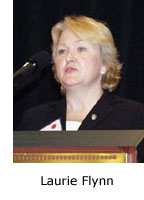 At the annual conference of the 2004 American Academy of Child and Adolescent Psychiatry's (AACAP), TeenScreen's Laurie Flynn admitted her hidden role in creating the NFC – by inserting a few words into a Bush campaign speech. Once "on the record" with a promise to form a commission, Flynn coerced Bush into keeping his "promise."
At the annual conference of the 2004 American Academy of Child and Adolescent Psychiatry's (AACAP), TeenScreen's Laurie Flynn admitted her hidden role in creating the NFC – by inserting a few words into a Bush campaign speech. Once "on the record" with a promise to form a commission, Flynn coerced Bush into keeping his "promise." George Stone, a licensed clinical social worker, is very concerned about the New Freedom mental health screening initiatives ...
 The President’s New Freedom Commission On Mental Health: The Plan to Drug American School Children
The President’s New Freedom Commission On Mental Health: The Plan to Drug American School Childrenby George Stone
 MEDICALIZATION: Convincing Healthy People They Are Sick
MEDICALIZATION: Convincing Healthy People They Are Sick"Charles Currie’s name is not a household word, but it should be. He was in charge of the Pennsylvania mental health system at the time TMAP was brought into that state from Texas. He gave final approval for adoption of TMAP in Pennsylvania, where it is known as PennMap; and he supervised the people who set up illegal “off book" accounts for the drug industry bribes to Pennsylvania officials that lubricated the process. Soon thereafter, President Bush (or Karl Rove) appointed Currie head of Substance Abuse and Mental Health Services Administration (SAMHSA) – perhaps as a reward for his good work on PennMap. Once at SAMHSA, Currie began vigorously promoting TMAP, TeenScreen, and other NFC recommendations. For example, in July 2005, a SAMHSA press release announced its sponsorship of the Federal Mental Health Action Agenda (FMHAA). FMHAA is a coalition of six cabinet level departments, including Health and Human Services, Justice, Housing and Urban Development, and represents a major effort.
 "The creators of TMAP claim they used scientific evidence to establish the safety and effectiveness of the drugs on their list. However, Allen Jones a former investigator for the Pennsylvania Office of the Investigator General (OIG) disputes this claim, “It has been revealed that TMAP personnel may have tampered with the research results through a process known as ‘Retrospective Analysis.’ Patients who had previously been treated with the new medications were researched, and files showing positive results were selected [out] and reported on. Unsurprisingly, TMAP research ‘confirmed’ that the new drugs were safer and more effective than the older treatments. Ignoring contrary findings, TMAP employees referred to their algorithm as being ‘Evidence-Based Best Practices.’ [But] Dr. Peter J. Weiden, a member of the project’s expert consensus, stated that the guidelines promoted by the program are based on ‘opinions, not data’ and that ‘most of the guideline’s authors have received [financial] support from the pharmaceutical industry."
"The creators of TMAP claim they used scientific evidence to establish the safety and effectiveness of the drugs on their list. However, Allen Jones a former investigator for the Pennsylvania Office of the Investigator General (OIG) disputes this claim, “It has been revealed that TMAP personnel may have tampered with the research results through a process known as ‘Retrospective Analysis.’ Patients who had previously been treated with the new medications were researched, and files showing positive results were selected [out] and reported on. Unsurprisingly, TMAP research ‘confirmed’ that the new drugs were safer and more effective than the older treatments. Ignoring contrary findings, TMAP employees referred to their algorithm as being ‘Evidence-Based Best Practices.’ [But] Dr. Peter J. Weiden, a member of the project’s expert consensus, stated that the guidelines promoted by the program are based on ‘opinions, not data’ and that ‘most of the guideline’s authors have received [financial] support from the pharmaceutical industry.""Let me summarize the situation:
1) the NFC was created as part of Laurie Flynn Pharma agenda.
2) TMAP, created under George W. Bush’s tenure as governor of Texas, is a list of expensive, ineffective and dangerous drugs.
3) despite its political/pharmaceutical birth, TMAP is presented as 'scientific' and a 'model' program and that has the support of President Bush’s NFC.
4) TMAP drugs have all been shown to be no more effective than older, cheaper drugs and they are far more dangerous than those older drugs.
5) TeenScreen has no scientific validity (it has high levels of false positives, for example).
6) TeenScreen has a record of flagrantly bypassing parental consent in screening children.
7) Children shown to be at risk by the TeenScreen program would be referred to a standard of treatment that is highly likely to use the dangerous TMAP drugs.
 "Is this the best US public mental health policy has to offer?
"Is this the best US public mental health policy has to offer?"TeenScreen and TMAP represent naked drug company greed. Even before these NFC recommendations were made there were 15 million Americans on Zyprexa (7.4 million) and Risperdal (7.6 million) alone in 2002. Sales of atypical antipsychotic drugs reached $6.4 billion, making them the fourth best selling class of drugs in America. “The combined sales of antidepressants and antipsychotics jumped from around $500 million in 1986 to nearly $20 billion in 2004 – a 40-fold increase.” (Whitaker 2004 & 2005) Yet, apparently this kind of growth is not enough for Pharma. A public mental health policy to screen children and get more of them on atypical antipsychotics is also required. ...
"Allen Jones contends that the TeenScreen program is 'designed to diagnose mental illness in teenagers…[but] has been shown to be coercive and unreliable. It serves the same political/pharmaceutical alliance that generated the Texas project [and is] behind the New Freedom Commission.' Using TeenScreen, this alliance is 'poised to consolidate the TMAP effort into a comprehensive national policy…with expensive, patented medications of questionable benefit and deadly side effects.'
TeenScreen: Introducing Children to Life-Long Use of Psychiatric Drugs
"Just as Pharma subsidized bone density tests in osteoporosis, so it is behind the promotion of TeenScreen as the mental health-screening tool of public mental health policy. TeenScreen is a nonprofit organization, housed at Columbia University – an interesting arrangement that gives TeenScreen an air of academic respectability it does not deserve. Let’s follow the money ...
 "Laurie Flynn is CEO of TeenScreen. Before joining Columbia, Laurie Flynn was CEO of the National Alliance for the Mentally Ill (NAMI); for 16 years Pharma paid her salary. NAMI is Pharma’s number one grassroots front group and is committed to promoting and selling as many drugs as possible. So, before joining Columbia, 'Laurie Flynn was the leading drug pusher in the United States.' During Flynn’s tenure, in the three-year period from 1996-1999 NAMI received $11.72 million from 18 different drug companies. ... "227
"Laurie Flynn is CEO of TeenScreen. Before joining Columbia, Laurie Flynn was CEO of the National Alliance for the Mentally Ill (NAMI); for 16 years Pharma paid her salary. NAMI is Pharma’s number one grassroots front group and is committed to promoting and selling as many drugs as possible. So, before joining Columbia, 'Laurie Flynn was the leading drug pusher in the United States.' During Flynn’s tenure, in the three-year period from 1996-1999 NAMI received $11.72 million from 18 different drug companies. ... "227Who will conduct the screening tests and write the algorithms? Eli Lilly and Johnson & Johnson, primarily, both with extensive ties to the Bush administration:
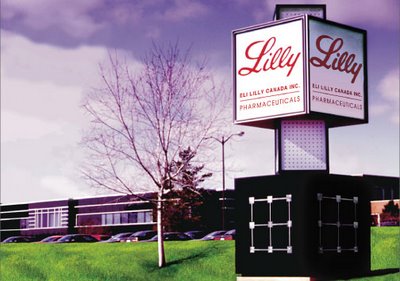 Eli Lilly (Prozac, Zyprexa):
Eli Lilly (Prozac, Zyprexa): • George Herbert Walker Bush – former CIA director, unindicted Iran contra co-conspirator, Eli Lilly director.
• George Herbert Walker Bush – former CIA director, unindicted Iran contra co-conspirator, Eli Lilly director. • Mitch Daniels, George W. Bush's former OMB director – former Eli Lilly vice president.
• Mitch Daniels, George W. Bush's former OMB director – former Eli Lilly vice president. • Sidney Taurel of Bush's Homeland Security Advisory Council – current CEO of Eli Lilly.
• Sidney Taurel of Bush's Homeland Security Advisory Council – current CEO of Eli Lilly.• The National Alliance for the Mentally Ill (NAMI) – major recipient of Eli Lilly funding.
(Source: Eli Lilly, Zyprexa and the Bush Family, by Bruce Levine)
Johnson & Johnson, parent company of Janssen Pharmaceutica (Risperdal):
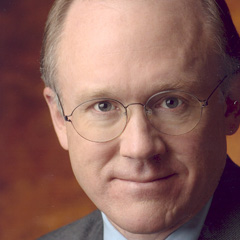 • Robert Wood Johnson IV, heir to the Johnson & Johnson fortune, raised more than $100,000 for George W. Bush's 2000 presidential campaign, and over $200,000 for Bush's 2004 campaign.
• Robert Wood Johnson IV, heir to the Johnson & Johnson fortune, raised more than $100,000 for George W. Bush's 2000 presidential campaign, and over $200,000 for Bush's 2004 campaign.(Source:"Bush Administration – Money, Politics & Drugs, by Evelyn Pringle)
[To be continued ... ]
NEXT ...

UP IN SMOKE ...
NOTES
218.) MHSA Database, "Steve McElravy of CSAP is Among 49 Killed."
http://www.nasadad.org/resource.php?base_id=840
219.) "19th Annual NPN Research Conference Held in Kentucky Despite Air Disaster, Hundreds Attend Conference," NASADAD release.
http://www.nasadad.org/resource.php?base_id=840
220.) Bob Curley, "SAMHSA Director Submits Resignation," Join Together News, May 26, 2006.
http://www.jointogether.org/news/features/2006/samhsa-director-submits.html
221.) Richard A. Warner, "Federal government launches marketing campaign for psychiatric industry," Online Journal, Nov 29, 2006.
http://onlinejournal.com/artman/publish/article_1480.shtml
222.) Ibid.
223.) http://www.westcare.com/aboutus.htm
From the WestCare site: "Andrews was the past Vice-Chairman of the Board of Trustees of Catholic Charities USA. He was a member of the Catholic Health Association’s New Covenant Phase IV national task force."
224.) On SAMHSA grant to WestCare Foundation, see:
http://www.samhsa.gov/StateSummaries/detail/2006/ky.aspx
225.) Freedom Center.
http://www.freedom-center.org/info/aboutus.html
226.) Ibid.
227.) George Stone, "The President’s New Freedom Commission On Mental Health: The Plan to Drug American School Children."
http://www.scoop.co.nz/stories/HL0605/S00432.htm




